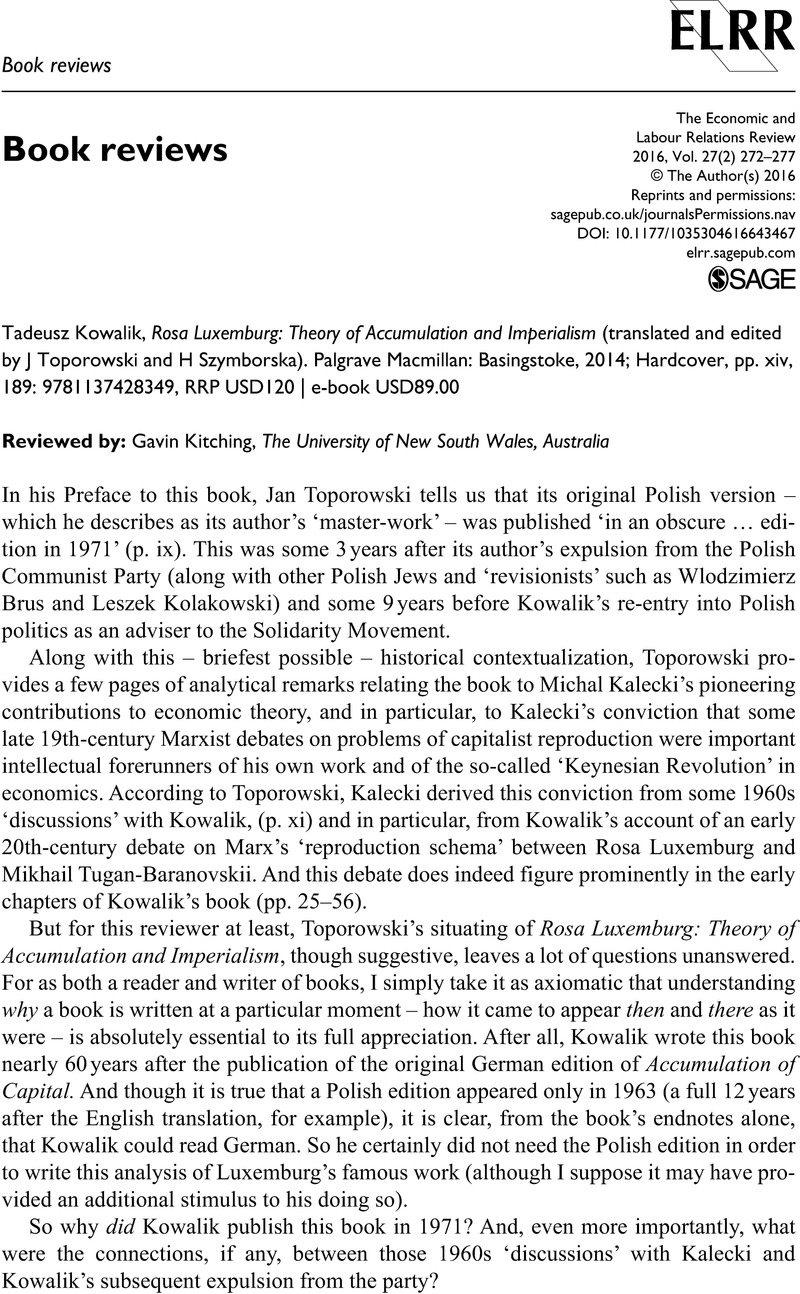No CrossRef data available.
Published online by Cambridge University Press: 01 January 2023

1. The most well-known interpretation of Accumulation of Capital as an under-consumptionist text is in Joan Robinson’s introduction to the 1951 English translation. But although this is referenced in the endnotes, it does not rate a mention in the text, let alone any analysis or critique.